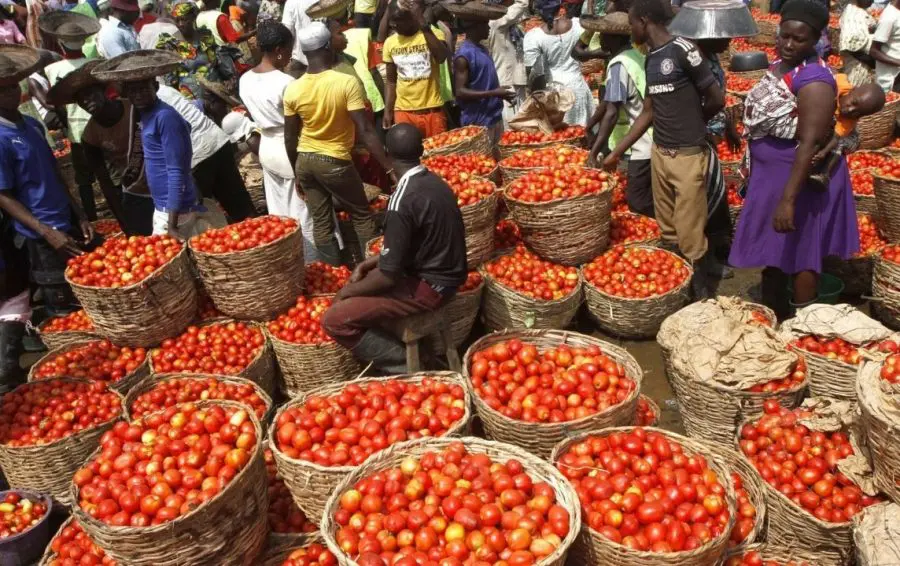
Shehu Jibrin, the Chairman of Mile 12 International Market in Lagos, has attributed the significant surge in tomato and pepper prices in Nigeria to various factors including inadequate supply, insecurity, and agricultural pests.
In an interview with Channels Television on Monday, Jibrin explained that the prices of tomatoes and peppers have risen sharply, with three pieces now selling for N1000 and N500 respectively, compared to N100 and N50 just a few months ago. This represents a staggering increase of 500 percent.
Jibrin pointed out that the reduced supply of tomatoes and peppers to Lagos from other states is largely due to insecurity and outbreaks of diseases affecting crops. He emphasized that without addressing the security challenges faced by farmers, the issue of high food prices will persist.
“Currently, it’s the off-season for tomatoes, and we normally expect supplies from places like Ilaro, Ogbomosho, Abeokuta, Osun, and even Cameroon to meet demand in Lagos. However, delays in supplies from these regions, especially due to insecurity, have exacerbated the situation,” Jibrin stated.
He highlighted the impact of the “tomato Ebola” disease on crop yields, noting that many farmers, particularly in the North where tomato production is significant, are unable to farm effectively due to insecurity. This, he said, has severely limited the availability of tomatoes and peppers in the market.
Jibrin underscored the urgent need for farmers to return to their farms, stressing that unless the security situation improves, prices of essential food items like tomatoes and peppers will continue to rise.
Previously, the Minister of Agriculture, Abubakar Kyari, and the Tomatoes Growers Association of Nigeria also linked the scarcity of tomatoes to the infestation of tomato farms by pests known as tomato leaf miners.
The surge in food prices, particularly for perishable items like tomatoes and peppers, has contributed to an overall increase in food inflation, which the latest report from the National Bureau of Statistics pegged at 40.66 percent.
Source: Daily Post


